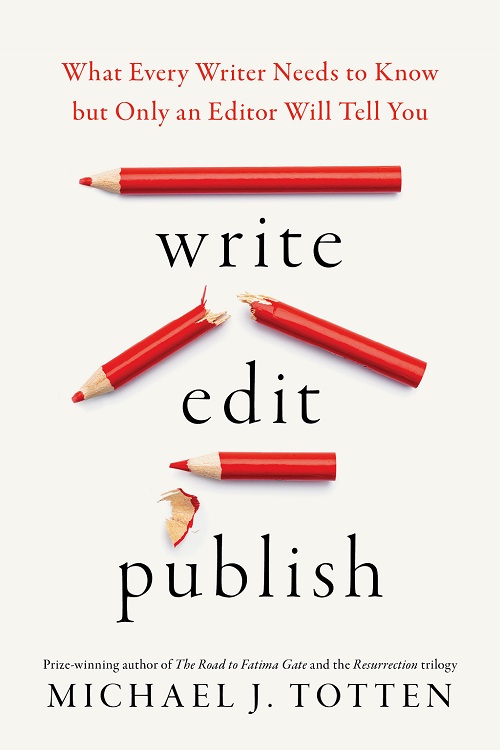Most people who want to be writers never write a book. A huge number of professional writers, including those who make their living from writing, never write one. It’s so much work, and so much easier to stick to articles, short stories, and blog posts.
Writing and polishing a book generally requires hundreds of hours across weeks, months, sometimes years. The amount of work that goes into a short story, an op-ed, or a business blog post is comparatively minimal. You should be able to draft one in a day without breaking a sweat. You’d be well advised to spend at least part of a second and third day revising and polishing it, but even so, you can easily finish one or more in less than a week.
But the sheer weight of writing, revising, and polishing a whole book can be crushing, like climbing Mount Everest with Mount Kilimanjaro strapped to your back.
It’s all in your head.
I mean, sure, you have to do the work. You aren’t imagining that. But you have to work every day anyway. Does your day job feel like climbing Mount Everest with Mount Kilimanjaro strapped to your back just because you have to do it every day? (Well, maybe it does, in which case you might need a different job.)
I worked as a full-time professional writer for seven years before I wrote my first book. Getting started, and getting all the way to the end, was the most daunting thing I’d ever done. Not until after I’d finished did I realize that it was only hard because I kept telling myself it was hard and that it would be so much easier to do it again now that I’d done it once.
It’s not just that writing a book requires a huge amount of work. This isn’t about laziness or the sheer quantity of work. Full-time writers already work every day. My first book, The Road to Fatima Gate, was a little over a hundred thousand words long, but I’d already written and published well over a million words before I wrote that.
Once you’ve written enough short stories, blog posts, or magazine articles, you’ll have a book’s worth of material. It doesn’t even take very long. If you write and polish 3,000 words every week, you’ll have a book’s worth of material every six months. That material might not be in the shape of a book (although it might be if you’re writing short stories and can combine them into a collection), but you’ll have 80,000 words, which is the length of a book. Not a short book either. That’s a typical length.
Writing 80,000 words one short piece at a time isn’t as intimidating as writing a book because it doesn’t feel like you’re writing a book. You’re writing one easy, little thing after another.
You see where I’m going with this? The key is to break your book into one easy, little piece after another. Those easy, little pieces are called chapters.
According to an old proverb, there’s only one way to eat an elephant: one bite at a time. Indeed. But if I delivered an elephant to your house and said you had to eat the whole thing, you’d feel overwhelmed. The fact that you only have to eat it one bite at a time rather than swallow the whole thing at once the way a snake swallows a mouse won’t make you feel much better about the proposition.
But what if I cut the elephant into individually wrapped steaks and delivered those to your house along with a gigantic freezer to store them in? You’d have your main course for dinner taken care of for an entire year. That doesn’t sound so bad, does it? You only have to eat one steak per day, and by the end of the year, you’ll have eaten the entire elephant.
That’s what it’s really like to write a book one chapter at a time.
You don’t have to write a chapter every day. You can write one every week. Or even one per month if your day job or your kids or your ailing parent or your side hustle is sucking up a huge amount of your time and energy. You’re not eating an elephant. You’re eating a steak. You’re not writing a book. You’re writing a chapter. And writing a chapter is easy.
*
If you enjoyed this post, you can read so much more in my book Write, Edit, Publish: What Every Writer Needs to Know but Only an Editor Will Tell You. You can also hire me as a developmental editor, line editor, copy editor, or publishing consultant. Tell me what you’re working on, send me your questions, ask for a free sample edit, or just say hi.


